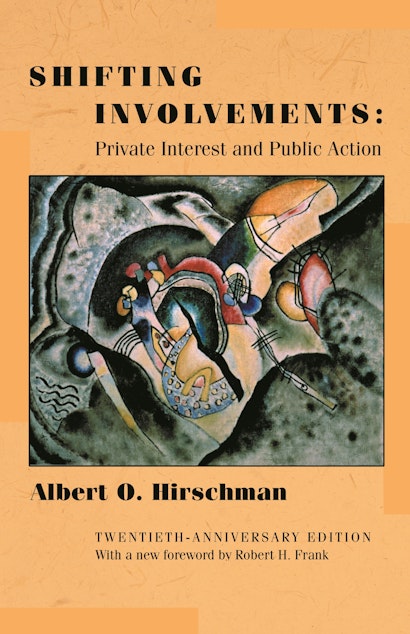Why does society oscillate between intense interest in public issues and almost total concentration on private goals? In this classic work, Albert O. Hirschman offers a stimulating social, political, and economic analysis dealing with how and why frustrations of private concerns lead to public involvement and public participation that eventually lead back to those private concerns. Emerging from this study is a wide range of insights, from a critique of conventional consumption theory to a new understanding of collective action and of universal suffrage.
Awards and Recognition
- Winner of the Talcott Parsons Prize, American Academy of Arts and Sciences
Albert O. Hirschman is a member of the Institute for Advanced Study in Princeton. He is the author of many books, including Exit, Voice, and Loyalty and The Strategy of Economic Development. Robert H. Frank is Godwin Smith Professor of Economics, Ethics, and Public Policy at Cornell University. He is the author of Luxury Fever (Princeton).
"Original. . . . Mr. Hirschman, one of our most distinguished economists, is no ordinary writer. . . .even his offhand ruminations have always been interesting. So is this book."鈥擯eter L. Berger, New York Times Book Review
"Shifting Involvements can be read over and over again, with each reading disclosing new subtleties, so cunning is its construction and so original its standpoint."鈥擬ichael Banton, Times Literary Supplement
"This interesting essay contains a wealth of ideas. There is a surprising freshness in the treatment of such a well worn topic as the relation between public and private concerns. . . . Intellectually stimulating."鈥擠avid Berry, Times Higher Education Supplement
"Literate, reflective, and sophisticated. . . . Hirschman's work . . . is proof that an economist with a knowledge of and sensitivity for history will avoid the oversimplifications of economic theorists who see the world and human behavior in one dimension."鈥擡li Ginzberg, Journal of Economic Literature

